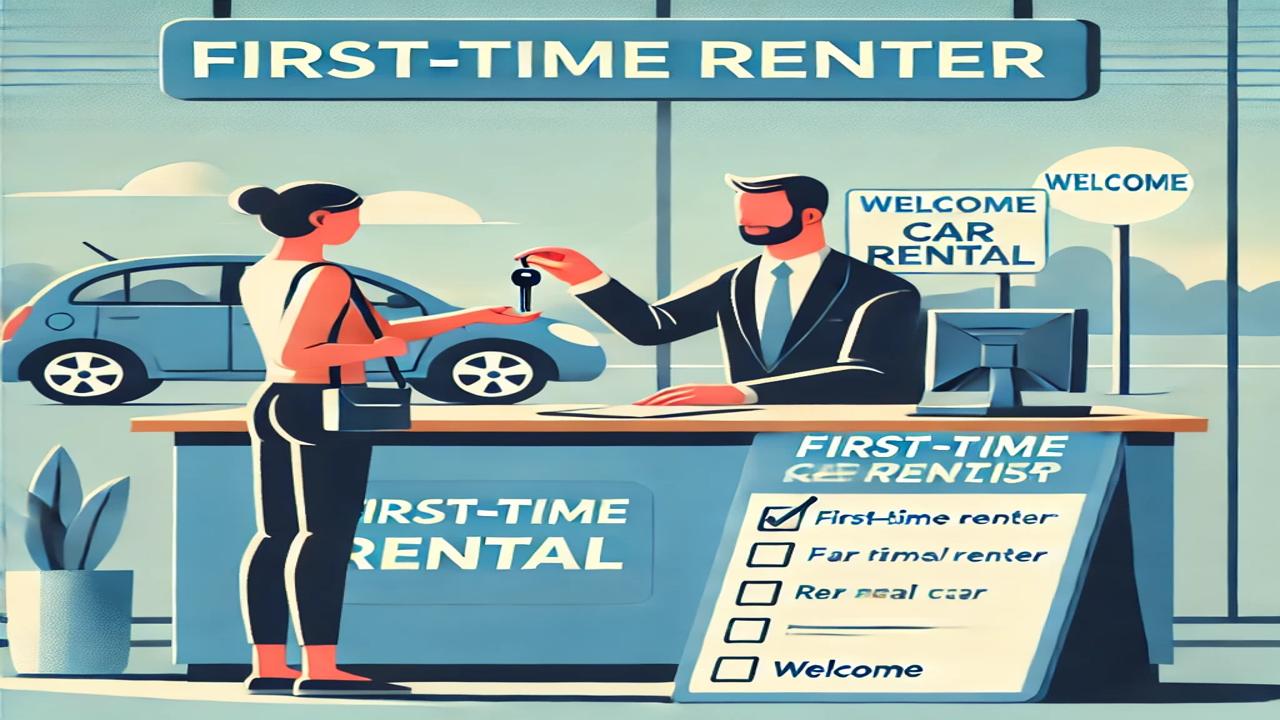Everything You Need to Know About Renting a Car for the First Time

1. What to Look for When Choosing a Car Rental Company
The car rental process starts with selecting the right rental company. Here are a few key factors to consider when choosing a rental company:
- Reputation and Reviews: A reliable company typically has positive customer reviews. You can read reviews online to get a better understanding of the company’s customer service and vehicle quality.
- Insurance Options: Carefully review the insurance options offered by the rental company. Basic insurance is usually included, but additional coverage options (such as full protection) may be available at an extra cost.
- Price Comparison: Compare prices from different rental companies to find the best deal. Prices can vary depending on the type of vehicle, rental duration, and location.
- Extra Charges: In addition to the quoted price, check if there are any hidden fees. Some companies may charge additional costs for airport fees, extra drivers, or fuel policies.
2. Documents Needed for Car Rental
Having the necessary documents ready in advance ensures a smooth and fast rental process. Here are the essential documents you’ll need:
- Valid Driver’s License: You need a valid driver’s license to rent a car. If you’re renting internationally, some countries may require an International Driver’s Permit (IDP).
- ID or Passport: You may be asked to present a valid passport or ID to verify your identity.
- Credit Card: Car rental companies typically require a credit card for the deposit. Therefore, having a credit card available is necessary.
- Age Limit: Most car rental companies have a minimum age requirement, usually between 21-25 years old. If you're under 25, you may incur additional fees.
3. Choosing the Right Vehicle for Your Needs
Car rental options are abundant, and selecting the right vehicle is crucial for your travel comfort. Here’s what to consider when choosing a car:
- Passenger and Luggage Capacity: Choose a vehicle based on the number of people traveling and the amount of luggage. If you’re traveling with family, you may need a larger vehicle. Also, consider the trunk capacity for your bags.
- Fuel Efficiency: If you plan to drive long distances, choosing a fuel-efficient car can save you money on gas.
- Driving Comfort: Depending on whether you’ll be driving in the city or long distances, prioritize comfort. Make sure the car is suitable for your travel needs.
4. Insurance Options and Coverage
Insurance is one of the most important aspects of renting a car. Most rental companies include basic insurance in the rental price, but this typically only covers limited aspects. Additional insurance options may include:
- Collision Damage Waiver (CDW): This insurance covers damage or theft of the vehicle.
- Third-Party Insurance: This covers any damage you cause to another vehicle or property.
- Theft Protection (TP): This covers theft of the vehicle.
- Comprehensive Coverage: This covers a wide range of potential issues during the rental period.
5. Car Pickup and Return Process
When you pick up the car, there are a few things to keep in mind to avoid issues:
- Inspect the Car: Inspect the exterior and interior of the car carefully. If you notice any existing damage, make sure to report it to the rental company and get it documented.
- Fuel Level: Most companies require you to return the car with the same fuel level it had when you picked it up. Be sure to check the fuel level before returning the car.
- Odometer Reading: Check the car’s odometer to verify the mileage.
- Insurance Review: Review the insurance policy again to make sure you have the coverage you need and request additional insurance if necessary.
6. Driving and Traffic Rules
When renting a car, it’s essential to follow the traffic laws of the country or region where you're traveling. Before hitting the road, make sure you're aware of the local driving rules, such as:
- Parking Regulations: Follow parking rules carefully to avoid fines or penalties. Be cautious of restricted zones and regulations.
- Speed Limits: Adhere to speed limits to ensure a safe journey and avoid fines.
- Local Road Signs: Familiarize yourself with road signs and their meanings in the region you are driving.
7. Car Return and Billing
When returning the car, the rental company may charge extra fees for any damages or extended use. Make sure to inspect the car thoroughly before returning it. Also, it’s important to inquire about any additional charges that might apply.










